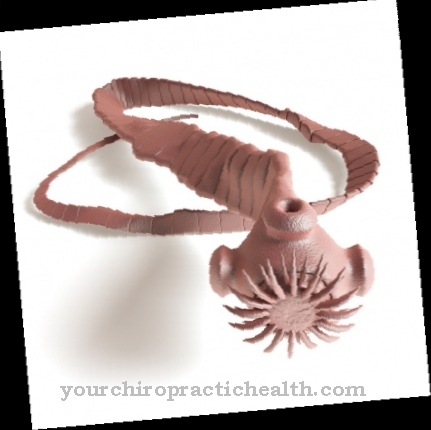The rehabilitation serves to make the patient independent after serious operations, illnesses and accidents. During rehabilitation, patients who have been dependent on help for a long time learn to find their way around as independently as possible in their everyday life, with possibly new restrictions.
What is rehabilitation?

Rehabilitation is an intensive accompaniment of patients who have suffered limitations and disabilities due to illnesses, accidents or severe treatments that are necessary as a result.
In the beginning, they will be helped as much as possible in the hospital and by nursing staff, but the aim of rehabilitation should be to show them how they can cope with everyday life with their new situation after treatment as independently as possible. In rehabilitation, patients learn to use aids, to integrate physical changes into everyday life, to care for injuries and to regulate their individual medical situation themselves as far as possible.
After rehabilitation, patients should be able to get by without nursing staff if possible and manage as large a part of their everyday life as possible even with aids. However, medical care during and after rehabilitation is still provided by a treating doctor if necessary, in most cases by the family doctor or, if necessary, by a specialist.
Treatments & therapies
Rehabilitation patients have mostly had serious accidents, heal a serious illness or are already cured. Sick people are sent to rehabilitation less often, for whom healing is still a long way, but who have to learn now to deal with changed physical conditions.
Rehabilitation is often used after operations on the musculoskeletal system, amputations or transplants. These can be the result of natural aging, osteoarthritis or arthritis, but frequent rehabilitation patients are also cancer patients. During or after treatment, whether successful or not, the diagnosis of cancer often requires serious surgical interventions on internal and external organs, which result in massive changes for the patient. Even survivors have to adjust their daily life after the healing to such an extent that rehabilitation can help them to perform the most important tasks themselves so that they do not have to constantly need help.
Rehabilitation is also possible for patients from the psychological and psychiatric departments. Since they were hospitalized for a long time, depending on the severity of the mental illness, they often need support in getting back to a regular everyday life. Depending on the type of illness, patients with mental illnesses may also need the support of rehabilitation in order to deal with the restrictions caused by the illness and the medication that it requires.
While rehabilitation after accidents and physical illnesses focuses on showing the patient the daily medical care on their own, rehabilitation after psychological treatment aims at dealing with necessary medication and integrating it into normal everyday life.
Diagnosis & examination methods
Patients in rehabilitation are either fully cured from a purely medical point of view or are in a transitional phase of their treatment where they could initially be discharged home. The job of doctors is to diagnose and treat the patient to the point where they can continue on an outpatient basis and leave the hospital. However, this does not mean that he can immediately cope with the new situation in everyday life - this is the task of rehabilitation.
The patient was prescribed medication and aids for everyday life by the doctor who referred him to rehabilitation. The medication has been discontinued and the aids are available - the rehabilitation only shows the patient how to use them and what to consider. In this way, he is not dependent on the constant presence of medical staff when using and ingesting it and can, if necessary, recognize warning signals so that he can consult the doctor at the right moment in case of difficulties.
Various professional groups work in rehabilitation, including speech therapists, orthopedists, nutritionists, masseurs, medical assistants and psychologists. The complementary team in rehabilitation clinics can develop a treatment program that is precisely tailored to the patient's medical history, as each rehab case is individual and can benefit from different specialist knowledge. Accident victims, for example, often receive support from sports therapists, physiotherapists or motor therapists in addition to psychological care, while cancer patients are more likely to be supported by medical assistants in using medical aids in the transitional phases of their treatment or in living with the consequences of the cancer after successful healing.
After gastric and intestinal operations, for example, a stoma is often necessary, an artificial anus. This poses a major hygienic risk, but it serves to completely heal the intestine - the patient learns to care for the ostomy during rehabilitation.
New diagnoses are not made during rehabilitation; these have already been made and treated during inpatient treatment. The rehabilitation staff can often treat minor difficulties with aids or lasting consequences of the treatment themselves, provided that there are no serious complications. Therefore, the work in rehabilitation consists only of the use of different disciplines tailored to the patient and his case, which is perceived as comparatively pleasant by the patient.



























